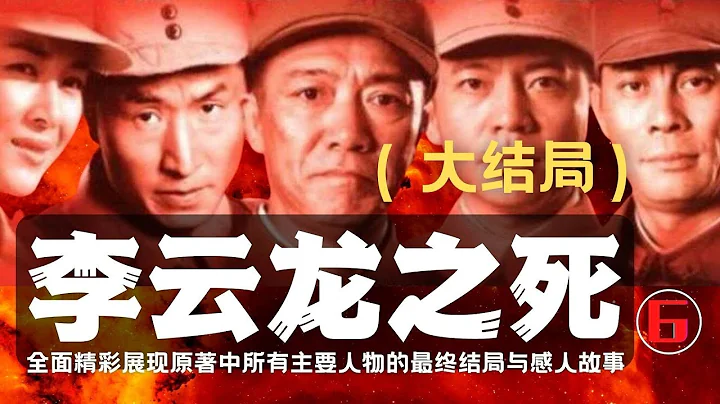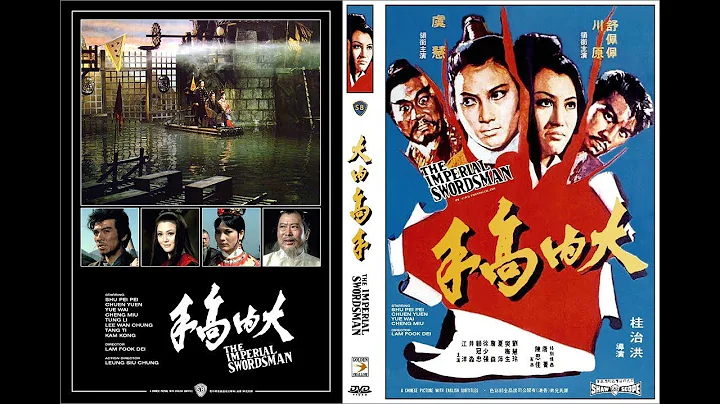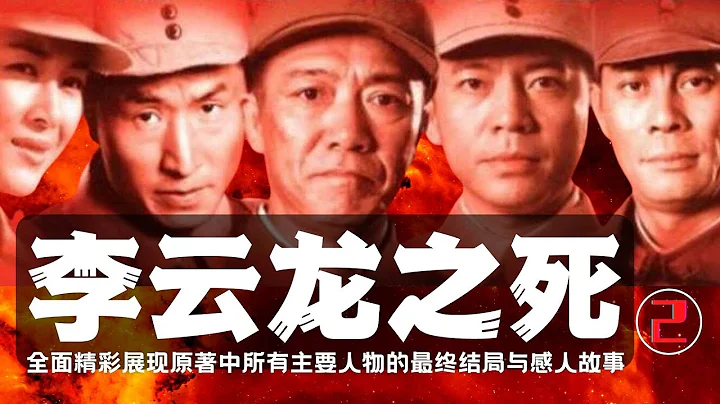
Jin Yong stopped writing before the Cultural Revolution ended in 1972, Liang Yusheng continued to write until the early 1980s. His last novel " Wudang Yijian" was first published in "Ta Kung Pao" on May 9, 1980. , ended on August 2, 1983, ten years after Jin Yong closed the book. So they can only be roughly divided. "If we look at the new martial arts literature as a whole, the middle period can be defined as 1958 to the late 1960s (1969). This period is also the time when Taiwanese martial arts novelists became active.

According to Mr. Ye Hongsheng, Wolong Since 1958, he has written "Flying Swallows Startled the Dragon", "Iron Flute Divine Sword", "Jade Hairpin Alliance", "Sushou Jie", etc.; Sima Ling also entered the martial arts literature world in 1958. The "Excalibur" series made its debut in the world of martial arts literature (there are also "Thousand Fantasy Records of Sword Qi", "The Legend of the Sword God", "Golden Thread Clothes", etc.), and there are many new works. With twenty-five works, it ranks first in the "martial arts world". Literary Circle", standing alongside Wo Longsheng, Zhuge Qingyun , etc., they are known as the "Three Musketeers of Taiwan". Zhuge Qingyun is a private disciple of the owner of Huanzhu Tower. In 1958, he also used Zhuge Qingyun as his pen name and wrote "The Two Heroes of Ink Sword" , " Zidian Qingshuang " and "Sword Sea Love Sky" are famous for the so-called "talented" martial arts literature. The three of them all engaged in martial arts literature in 1958, but their writing style basically followed the old martial arts literature. All the way.

The emergence of Gu Long is a new approach. He is unique in the martial arts literature world in Taiwan with his "new style". Gu Long entered the martial arts literature world in 1960. At the beginning, his several works were generally unremarkable. It was not until 1964 that he wrote "Huanhua Swords" and he began to become famous. The period from 1965 to 1966 was a fruitful period for his creation. He wrote "The Legend of the Flag Hero" and "The Legend of Famous Swords". ", "The History of Martial Arts", "The Legend of Two Prides" and other famous works written in 1967, "The Legend of Iron Blood" (i.e. the "Chu Liuxiang series") and the later "The Passionate Swordsman: The Ruthless Sword" and "The Iron Daredevil". "Soul" and " Xiao Shiyilang ", and has written sixty-one volumes in total, totaling 28 volumes. Later generations divided them into eleven series when compiling the book, although his "new" method was somewhat different from that of Jin and Liang. There are differences (especially in terms of historical fidelity, detailed description, and writing style), but most people still classify it as a "new school". Therefore, the 1960s can be said to be the heyday of new martial arts literature, which was also the rise of martial arts in Hong Kong and Taiwan. The grand view of literature. Relatively speaking, this period in mainland China was an exciting and exciting period from the anti-rightist movement to the beginning of the Cultural Revolution. The political movement was overwhelming and the literary world was completely silent.

Jin and Liang often wrote three novels at the same time. , with so many characters and plots, if you want to be innovative and unconventional, you have to be like a national chess player who plays with several, or even more than ten, people at the same time. Jin Yong said this. In one period, he wrote "The Legend of the Condor Heroes", "The Legend of the Condor Heroes", "The Legend of the Condor Heroes", "The Legend of Heaven and Sword of the Dragon", "The Eight Parts of the Dragon", and "The Swordsman". It is full of momentum, with many characters but distinct personalities, and ups and downs of the plot, but it is meticulous. Today's Jin Yong fans and researchers are all attracted to his works in this period and have given them considerable praise.

Liang Yusheng began to publish "The Shadow of the Shadow" on New Year's Day in 1959, and continued to write "The Legend of the Glacier Goddess" (August 15, 1959), "The Story of Hoan Kiem" (1959) November 1961), "The Lady of Loose Flowers" (February 1960), "The Legend of the Empress" (July 1961), "The Record of Lianjian Fengyun" (July 1961), "The Yunhai Jade Bow" (October 1961), "Bing Po Cold Light Sword" (1962), "The Legend of the Tang Dynasty Knight" (New Year's Day, 1963), "Ice Sword Cleansing Record" (August 1963), "Dragon and Phoenix Treasure Chai Record" "(June 1964), "Crazy Hero, Proud Witch" (July 1964), "Wisdom Sword and Heart Demon" (May 1966), "Wind and Thunder Shake Nine Provinces" (September 1965), "Flying Phoenix Qian" "Dragon" (November 1966), "The Heart of a Chivalrous Man" (October 1967), "The Great Wind in the Vast Sea" (March 1968), "The Record of Mingdi Fengyun" (June 1968), "You Jianjianghu" (1969) July 2017), a total of nineteen novels, most of which were published in Ta Kung Pao, New Evening News, Commercial Daily, and Noon Daily.

Many works were published in three volumes in one year, such as 1959 and 1961. For example, when the three volumes were written in 1961, some of the three volumes in 1959 were not yet written. It is not easy to finish the story with a lot of confusion but to be clear and coherent. This is completely different from the way other writers write.
When writing every day, it is inevitable to make mistakes in haste. This is why Jin Yong now spends a lot of effort to correct and rewrite the errors and omissions in his original manuscript. He said that the ancients had a saying of "regret for less work", and he also wanted to correct the mistakes and omissions he had written hastily at that time, in order to make them more reasonable and perfect. Some people disagree with this, while others praise him for his serious rewriting, and his works can be regarded as literary classics, and so on.

During this period, Gu Long also entered a fruitful period of his creation, from "Huanhua Swords" (1964), "The Legend of the Banner Hero", "Famous Swordsman", "A History of Martial Arts", "Peerless Two Prides" " were all written in 1965 and 1966, "Legend of Iron Blood" (Chu Liuxiang Story Series) (1967), followed by "The Sentimental Swordsman" and "The Soul of the Brave Hero" The second part (also known as " Fengyun First Blade ") creates the special style and writing method of Gu Long's novels.
















